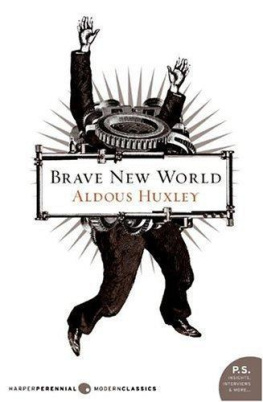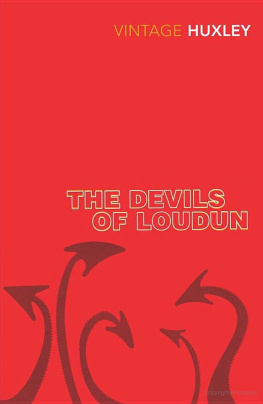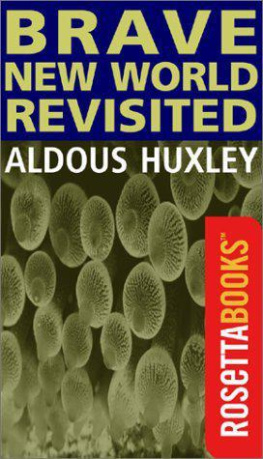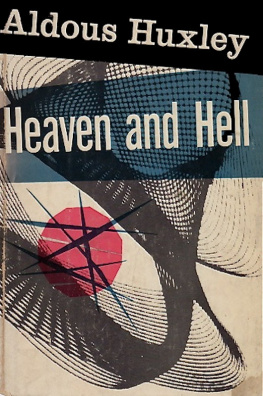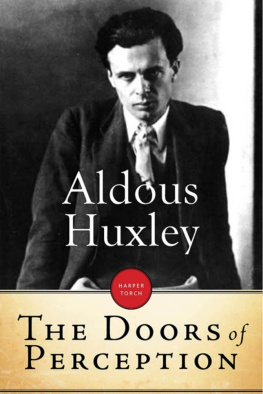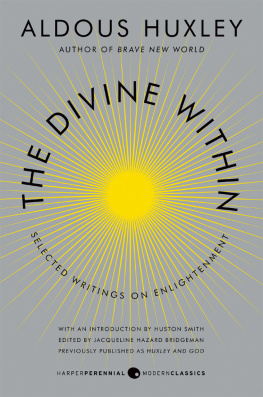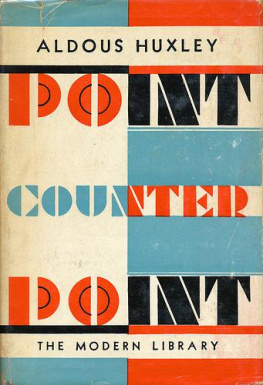Aldous Huxley - Brave New World
Here you can read online Aldous Huxley - Brave New World full text of the book (entire story) in english for free. Download pdf and epub, get meaning, cover and reviews about this ebook. year: 2010, publisher: Harper Perennial Modern Classics, genre: Detective and thriller. Description of the work, (preface) as well as reviews are available. Best literature library LitArk.com created for fans of good reading and offers a wide selection of genres:
Romance novel
Science fiction
Adventure
Detective
Science
History
Home and family
Prose
Art
Politics
Computer
Non-fiction
Religion
Business
Children
Humor
Choose a favorite category and find really read worthwhile books. Enjoy immersion in the world of imagination, feel the emotions of the characters or learn something new for yourself, make an fascinating discovery.
- Book:Brave New World
- Author:
- Publisher:Harper Perennial Modern Classics
- Genre:
- Year:2010
- Rating:3 / 5
- Favourites:Add to favourites
- Your mark:
- 60
- 1
- 2
- 3
- 4
- 5
Brave New World: summary, description and annotation
We offer to read an annotation, description, summary or preface (depends on what the author of the book "Brave New World" wrote himself). If you haven't found the necessary information about the book — write in the comments, we will try to find it.
Brave New World — read online for free the complete book (whole text) full work
Below is the text of the book, divided by pages. System saving the place of the last page read, allows you to conveniently read the book "Brave New World" online for free, without having to search again every time where you left off. Put a bookmark, and you can go to the page where you finished reading at any time.
Font size:
Interval:
Bookmark:
Brave New World
Aldous Huxley
Brave New World
Copyright 1932, 1946 by Aldous Huxley
Cover art to the electronic edition copyright 2000 by RosettaBooks, LLC
No part of this book may be used or reproduced in any manner whatsoever without written permission except in the case of brief quotations embodied in critical articles and reviews,
Electronic editions published 2000, 2010 by RosettaBooks LLC, New York.
ISBN Mobipocket edition: 9780795311246
Aldous Huxleys Brave New World has the modern age firmly in its sights. With devastating irony and fascinating precision, the novel, published in 1932, describes a futuristic world some six centuries hence in which mankind has been re-engineered for maximum efficiency, and contained and controlled by the constant satisfaction of pleasure. It is a less violent vision than that of Huxleys friend and former student George Orwell, in 1984, but it is possibly even more disturbing.
Aldous Huxley (18941963) is one of the most interesting figures English literature produced in the early 20th century. His early work bespoke his origins, as the well-bred son of one of Englands most distinctive families (his grandfather helped realize Darwins theory of evolution and his great-uncle was Matthew Arnold). But Huxleys clever, stinging satires of English intellectual life (Crome Yellow, Antic Hay) quickly gave way to a new seriousness with the publication of Brave New World. A vision problem had kept him from pursuing a career in medicine, and maturity brought about in him a spiritual restlessness that was encouraged by his friend D.H. Lawrence. For the remainder of his lifemuch of it spent in southern CaliforniaAldous Huxley explored political and philosophical issues in his essays and his novels of ideas. Brave New World remains his best-known work, and it inspired a sequel in the form of essays, entitled Brave New World Revisited.
Les utopies apparaissent comme bien plus ralisables quon ne le croyait autrefois. Et nous nous trouvons actuellement devant une question bien autrement angoissante: Comment viter leur ralisation dfinitive? Les utopies sont ralisables. La vie marche vers les utopies. Et peut-tre un sicle nouveau commence-t-il, un sicle o les intellectuels et la classe cultive rveront aux moyens dviter les utopies et de retourner une socit non utopique, moins parfaite et plus libre.
NICOLAS BERDIAEFF
Translation
Utopias seem to be much more attainable than one would have believed in other times. And we currently find ourselves faced with a different kind of agonizing question: How can one avoid their definitive attainment? Utopias are attainable. Life leads us toward utopias. Perhaps a new century will begin, a century in which the intellectuals and the cultivated classes will dream again of ways to avoid utopias and to return to a non-utopian society, one less perfect and more free.
A squat grey building of only thirty-four stories. Over the main entrance the words, C ENTRAL L ONDON H ATCHERY AND C ONDITIONING C ENTRE , and, in a shield, the World States motto, C OMMUNITY , I DENTITY , S TABILITY .
The enormous room on the ground floor faced towards the north. Cold for all the summer beyond the panes, for all the tropical heat of the room itself, a harsh thin light glared through the windows, hungrily seeking some draped lay figure, some pallid shape of academic goose-flesh, but finding only the glass and nickel and bleakly shining porcelain of a laboratory. Wintriness responded to wintriness. The overalls of the workers were white, their hands gloved with a pale corpse-coloured rubber. The light was frozen, dead, a ghost. Only from the yellow barrels of the microscopes did it borrow a certain rich and living substance, lying along the polished tubes like butter, streak after luscious streak in long recession down the work tables.
And this, said the Director opening the door, is the Fertilizing Room.
Bent over their instruments, three hundred Fertilizers were plunged, as the Director of Hatcheries and Conditioning entered the room, in the scarcely breathing silence, the absent-minded, soliloquizing hum or whistle, of absorbed concentration. A troop of newly arrived students, very young, pink and callow, followed nervously, rather abjectly, at the Directors heels. Each of them carried a notebook, in which, whenever the great man spoke, he desperately scribbled. Straight from the horses mouth. It was a rare privilege. The D.H.C. for Central London always made a point of personally conducting his new students round the various departments.
Just to give you a general idea, he would explain to them. For of course some sort of general idea they must have, if they were to do their work intelligentlythough as little of one, if they were to be good and happy members of society, as possible. For particulars, as every one knows, make for virtue and happiness; generalities are intellectually necessary evils. Not philosophers but fretsawyers and stamp collectors compose the backbone of society.
To-morrow, he would add, smiling at them with a slightly menacing geniality, youll be settling down to serious work. You wont have time for generalities. Meanwhile
Meanwhile, it was a privilege. Straight from the horses mouth into the notebook. The boys scribbled like mad.
Tall and rather thin but upright, the Director advanced into the room. He had a long chin and big rather prominent teeth, just covered, when he was not talking, by his full, floridly curved lips. Old, young? Thirty? Fifty? Fifty-five? It was hard to say. And anyhow the question didnt arise; in this year of stability, A.F. 632, it didnt occur to you to ask it.
I shall begin at the beginning, said the D.H.C. and the more zealous students recorded his intention in their notebooks: Begin at the beginning. These, he waved his hand, are the incubators. And opening an insulated door he showed them racks upon racks of numbered test-tubes. The weeks supply of ova. Kept, he explained, at blood heat; whereas the male gametes, and here he opened another door, they have to be kept at thirty-five instead of thirty-seven. Full blood heat sterilizes. Rams wrapped in theremogene beget no lambs.
Still leaning against the incubators he gave them, while the pencils scurried illegibly across the pages, a brief description of the modern fertilizing process; spoke first, of course, of its surgical introductionthe operation undergone voluntarily for the good of Society, not to mention the fact that it carries a bonus amounting to six months salary; continued with some account of the technique for preserving the excised ovary alive and actively developing; passed on to a consideration of optimum temperature, salinity, viscosity; referred to the liquor in which the detached and ripened eggs were kept; and, leading his charges to the work tables, actually showed them how this liquor was drawn off from the test-tubes; how it was let out drop by drop onto the specially warmed slides of the microscopes; how the eggs which it contained were inspected for abnormalities, counted and transferred to a porous receptacle; how (and he now took them to watch the operation) this receptacle was immersed in a warm bouillon containing free-swimming spermatozoaat a minimum concentration of one hundred thousand per cubic centimetre, he insisted; and how, after ten minutes, the container was lifted out of the liquor and its contents reexamined; how, if any of the eggs remained unfertilized, it was again immersed, and, if necessary, yet again; how the fertilized ova went back to the incubators; where the Alphas and Betas remained until definitely bottled; while the Gammas, Deltas and Epsilons were brought out again, after only thirty-six hours, to undergo Bokanovskys Process.
Font size:
Interval:
Bookmark:
Similar books «Brave New World»
Look at similar books to Brave New World. We have selected literature similar in name and meaning in the hope of providing readers with more options to find new, interesting, not yet read works.
Discussion, reviews of the book Brave New World and just readers' own opinions. Leave your comments, write what you think about the work, its meaning or the main characters. Specify what exactly you liked and what you didn't like, and why you think so.

